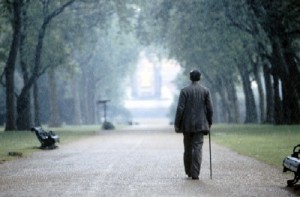Finding Neverland: sentiment 1 – sentimentality 0 – a good victory

J M Barrie
![]()
Finding Neverland – Marc Foster
The Peter Pan story can either rot the brain or lift the spirit. Decades of commercial exploitation have virtually sucked it dry of any true feeling. Yet it seems to touch something so deep in us that it is indestructible. It must be to have survived the aesthetically treacly assault of Spielberg and Robin Williams in Hook (1991). In contrast, the poignant and deeply sad, Finding Neverland gently reaches into the story to expose its heart and lift our spirits with something of what it is that makes the tale of the boy who never grew up eternally resonant.
Cleverly, Director Marc Foster and screenwriter David Magee, release the spirit of Peter Pan indirectly through an imaginative take on the real relationships between James Barrie and the Llewellyn Davies family who were the models for the Darling family of the play. Using real events as a base and drawing on the play by Alan Knee, Foster has created a very moving film, longer on aesthetic than historical truth; but none the worse for that. The licence taken with the actual facts serves a valid aesthetic purpose in adding potency to the complex emotions and relationships from which Barrie’s imagination spun his magical tale.
Finding Neverland is a quiet, impressive movie served by superb performances: Depp, always a mesmeric presence on camera makes Barrie absorbing and engaging with a finely judged performance free of his occasional flamboyance which would have been out of place here; Kate Winslett’s natural, spiky, feisty screen persona works well to make sense of Barrie’s ambiguous emotions towards her. Dustin Hoffman in an effective, understated performance, does overdue penance for his hammy ‘Hook’ of yesteryear. Radha Mitchell plays the thankless role of Barrie’s wife Mary, with a beautiful sad stillness that makes her surprisingly sympathetic, with a kind of loving wistfulness that Barrie invites another woman, not her, into the precious world of his imagination.
These are performances of great skill, allowed to breathe and engage us through subtle unobtrusive editing and a beautifully restrained score by Jan Kaczmarek (‘Peter’s Song’ by Elton John). But the key to the film’s powerful evocation of the essence of the Peter, is Freddie Highmore, simply overwhelming in the role of Peter Llewellyn Davies: Barrie’s inner Peter Pan self externalised in the flesh. This extraordinary ‘performance’ displays such an acute sense of absolute vulnerability one simply and unashamedly, weeps. As seen in the film, it would be crass and trivialising to reduce and distort a profoundly complex relationship to repressed sexuality.
Finding Neverland touches us deeply with a portrayal of real emotions and relationships, at times heartrending but not manipulative. Through the grief and sadness these young lives have to face we are flown through the open window of Barrie’s imagination to a way of escaping, for a while at least, into a magical world where to be safe and happy and free of pain, all we have to do is believe we can will it so. To grow up is to lose one’s youthful sense of immortality to the brutal reality of the inevitability death. Romantic and sentimental this vision may be but for 100 years it has put a momentary smile on the face of sadness for people of all ages and looks destined to do so for a very long time to come.
(November 2004)
Filed under: 4 stars, Drama, General, Hollywood, Marc Foster, Musical, Oscar Winner, Romance

